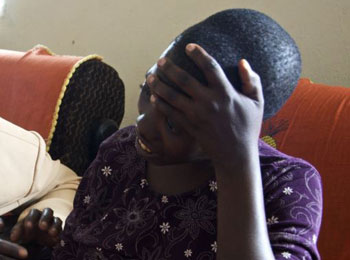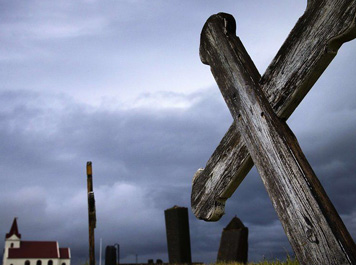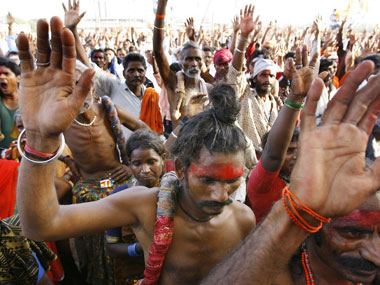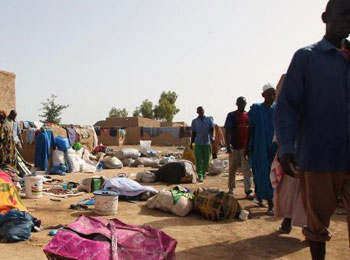 IN about half of sub-Saharan African countries, there is no law specifically saying a man can’t force his wife to have sex with him. In at least three countries, laws don’t allow women to bring rape charges against their husbands. Efforts to criminalize marital rape have been controversial, and the results have been mixed.
IN about half of sub-Saharan African countries, there is no law specifically saying a man can’t force his wife to have sex with him. In at least three countries, laws don’t allow women to bring rape charges against their husbands. Efforts to criminalize marital rape have been controversial, and the results have been mixed.
Sub-Saharan African countries have taken several approaches to criminalizing what is known as spousal, or marital, rape since the U.N. Convention on the Elimination of All Forms of Discrimination Against Women recognized it as a form of gender-based violence in 1980.
South Africa was one of the first. In 1993, legislators removed an existing legal provision that exempted husbands from rape charges “by reason of [a woman’s] consent in marriage.” To make it extra clear, the new law also stated that “a husband may be convicted of the rape of his wife.”
Since then, nearly 20 other African countries have taken similar steps.
At the other end of the spectrum are Nigeria, Ethiopia and Kenya, where husbands are exempt. The laws in those countries say that rape can only happen outside of wedlock.
And then there are the countries like Senegal, where there is no mention of it in the penal code. Senegalese lawyers specializing in women’s rights told VOA they can’t recall anyone ever testing it out.
The Association of Women Lawyers in Senegal runs a free, walk-in legal aid clinic in Dakar. An attorney there, Jihonda Joseph Mane, says he has had clients seeking to divorce husbands who were raping them.
“One of them told me her husband is violent. He was beating her. At night, she doesn’t want him to touch her, but he is stronger and he rapes her so she wanted a divorce. But she forbid me from putting any of that in the divorce request,” said Mane.
Statistics are difficult. Rape and domestic violence are under-reported in Senegal and throughout the continent. Even in the countries that have criminalized marital rape, few people actually consider it a crime.
Ndeye Diagne runs a counseling and crisis center for a non-governmental organization in the city of Kaolack. She says she has seen it all, including men beating their wives for trying to refuse sex.
She explained how marital rape typically comes up.
“The woman gives birth and the husband won’t wait the traditional 40 days. Women try to refuse because they have stitches or have just had a cesarean. Because of our traditions, these women don’t want to denounce their husbands or take them to court. Instead they come to us and ask us to mediate to explain to their husbands the dangers of infection or internal damage,” said Diagne.
Diagne says deeply entrenched religious and social values say a woman should be sexually submissive to her husband but “health trumps all.”
In Uganda, the clause against marital rape is one of the most controversial parts of the Marriage and Divorce bill put before parliament earlier this year.
The proposal gives a wife the right to say no to sex, but only in certain circumstances, like right after childbirth or if she suspects her husband has a sexually transmitted disease. Rita Achiro is Executive Director of the Uganda Women’s Network, which has lobbied for the bill.
“You know, there’s the African thing that your husband can’t rape you. They will tell you how can your husband rape you? It’s an entitlement. That’s the belief people have, so we are still going round in circles trying to safeguard women using conditions under which she can deny the other sex. Ideally, it shouldn’t happen like that, there shouldn’t be conditions. Rape is rape,” said Achiro.
In the countries that have made laws against marital rape, the punishments vary widely. They include fines and prison time, anywhere from eight days in Burundi to life imprisonment in Zimbabwe. However, activists say sentencing requirements are not respected. Few women come forward and even fewer cases are actually prosecuted.
There is a lot of cultural pressure to resolve these so-called “domestic matters” in the family through mediation. Many women can also simply not afford to put their husbands, the primary breadwinners, in jail.
So why bother passing a law against marital rape?
Here in Senegal, some lawyers and counselors working with battered women say it’s not a priority, at least not right now. However, others across the continent say “getting it down in black and white” sends a strong message that “a woman is not her husband’s property.” VOA





















